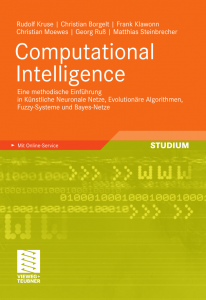I’ve returned from the Specialist’s Group on Artificial Intelligence of the British Computer Society’s meeting at Peterhouse College, Cambridge, UK. The event was quite worthwile, where undoubtedly the best speaker was Max Bramer himself. On Monday he gave a talk to PhD students on „How to survive a viva“. Since he often has been and will be an external supervisor or reviewer of PhD students‘ theses, he told us what he thinks is important in the thesis, how to write it, what and what not to do and so on. His talk was riddled with hilarious real examples of what he saw in thesis drafts or even final theses. That event, even featured as a free event to PhD students, was actually included for the first time at the conference before the main conference began on Tuesday.
The main sessions of the conference were very interesting as well, although the atmosphere could have been less frosty if the rooms of Peterhouse College had been heated appropriately. The buildings, as nice and beautiful as they are, date back to 1284, where the time in between actually did see a lot of improvements in housing technology that could be applied to Peterhouse without breaking the building’s dignity at all. The room we had lunch in actually strongly reminded me of the Harry Potter movies where all the students dine together — except the owls never came in and no magic was applied.
My talk on Wednesday went through quite smoothly. My session chair, Frans Coenen, was definitely familiar with the topic and the 25+ people also seemed to have understood what I had been talking about. There will probably be a book chapter in a book about „Post-Mining of Association Rules“, although we’re required to use Word for it instead of LaTeX. But the editor agreed that we could work with LaTeX up to a final version which we would have to convert to Word at the end only. I don’t yet know how that’s gonna work as smoothly as my talk, but we’ll have to have it accepted first anyway.
